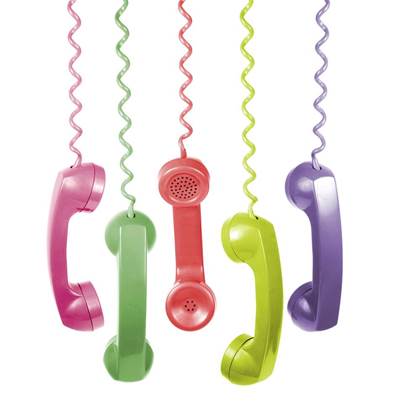Shadow minister for telecommunications Michelle Rowland has called upon “industry, standards bodies and regulators” to fix Australia’s phone numbering system and prevent call spoofing to make life harder for scammers.

But her call has already been answered, in part, by an Australian Communications and Media Authority-led inquiry.
Rowland yesterday made a Constituent Statement in the House of Representatives (page 75 of this pdf) in which she bemoaned that call spoofing means that “When your phone rings and the caller ID appears to be from a legitimate and more trusted Australian number, that call is more likely to be answered".
And that’s a problem because offshore scammers using local numbers are ripping off plenty of Aussies.
“It's no secret that one of the most prominent channels for scammers is the plain old telephone line,” Rowland said.
“There are callers pretending to call from the NBN, claiming that your service is about to be disconnected. Given the prominence of the NBN rollout, it is alarming that monthly losses from reported NBN scams have tripled in 2019.
“There are callers impersonating the ATO, threatening unsuspecting customers with arrest for supposedly not paying their taxes,” she added. “These lowball tactics are designed to shock and scare Australians into engaging with the caller.”
She therefore suggested “it's surely not beyond the collective will of industry, standards bodies and regulators to restore integrity to our numbering system.”
One fix she suggested is network-based caller ID authentication, which she said “is being implemented in the US.
“Another potential tool is having a scam blacklist. Even with the latest technical solutions, the reality is it won't be possible to stop every scam call, but Australians expect us to tackle scams better, and their expectations are justified.”
Australia’s phone numbering regime is regulated by the Australian Communications and Media Authority (ACMA), a spokesperson for which told iTnews it’s already “engaged in a project to examine technological solutions to reduce scam activity on Australia telecommunications networks.”
That effort is “looking at overstamping of numbers (so-called spoofing) and the utility of authentication protocols in the Australian context.” The ACMA is working with the ACCC, the Australian Cyber Security Centre the Department of Communications and the Arts, and seeking advice from industry and international regulators.
A discussion paper on the effort was released in March 2019 and the ACMA expects a final report will land on Comms minister Paul Fletcher’s desk by the end of the year. iTnews sought Fletcher’s comments on Rowland’s remarks, but has not received a reply at the time of writing.


_(28).jpg&h=140&w=231&c=1&s=0)








 iTnews Executive Retreat - Security Leaders Edition
iTnews Executive Retreat - Security Leaders Edition
 iTnews Cloud Covered Breakfast Summit
iTnews Cloud Covered Breakfast Summit
 Melbourne Cloud & Datacenter Convention 2026
Melbourne Cloud & Datacenter Convention 2026
 The 2026 iAwards
The 2026 iAwards












_(1).jpg&h=140&w=231&c=1&s=0)



